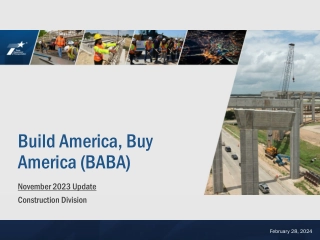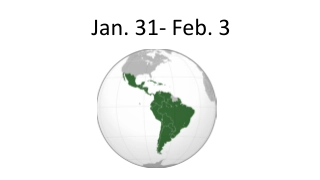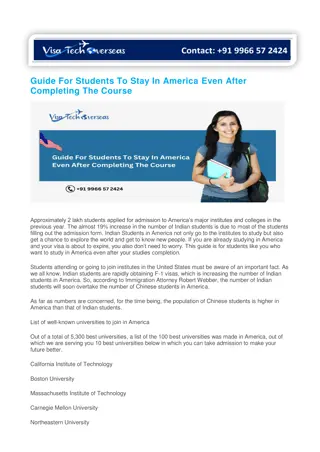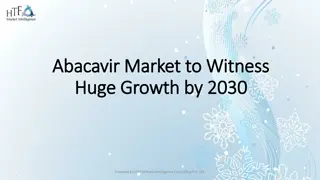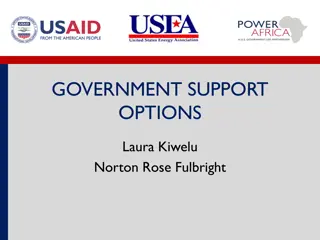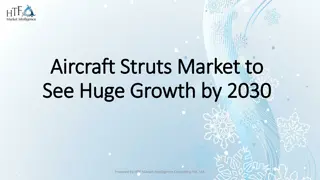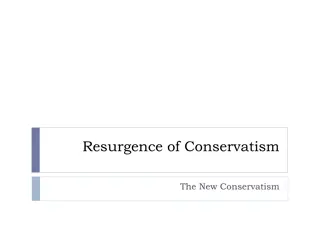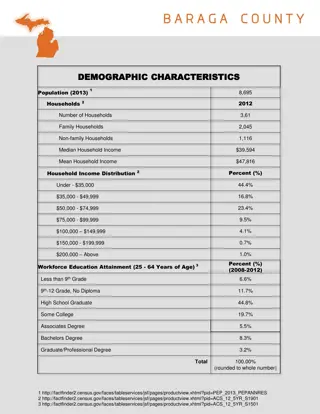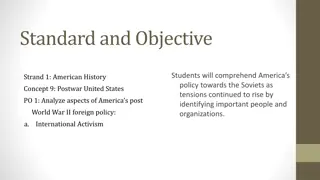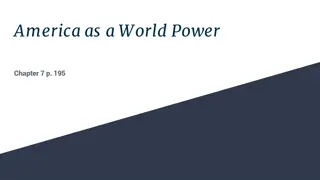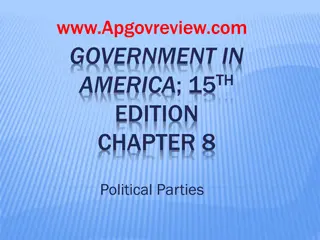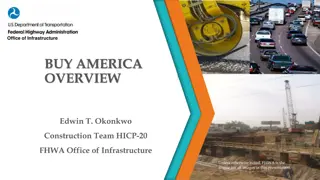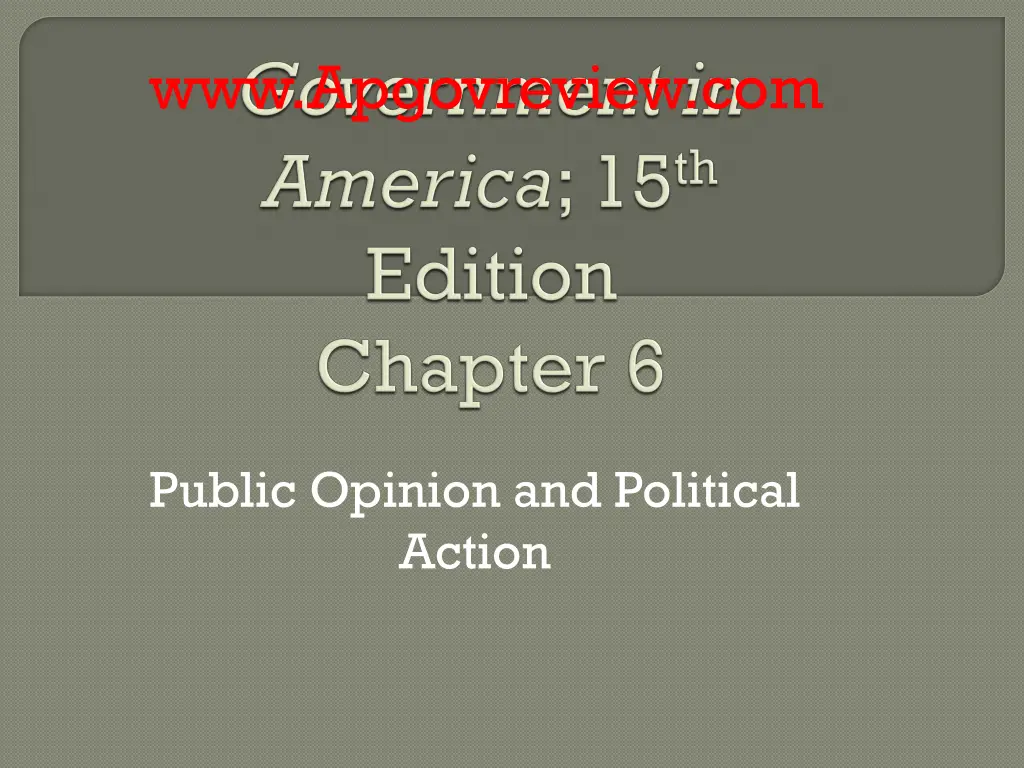
Understanding Public Opinion, Immigration, and Political Socialization in America
Explore key topics such as public opinion, immigration trends, and political socialization in the United States. Learn about the impact of polls, census data, and the American melting pot on political action and society at large.
Download Presentation

Please find below an Image/Link to download the presentation.
The content on the website is provided AS IS for your information and personal use only. It may not be sold, licensed, or shared on other websites without obtaining consent from the author. If you encounter any issues during the download, it is possible that the publisher has removed the file from their server.
You are allowed to download the files provided on this website for personal or commercial use, subject to the condition that they are used lawfully. All files are the property of their respective owners.
The content on the website is provided AS IS for your information and personal use only. It may not be sold, licensed, or shared on other websites without obtaining consent from the author.
E N D
Presentation Transcript
www.Apgovreview.com Public Opinion and Political Action
Census required by law to be taken every ten years Helps determine how much $ each state gets and representatives The Immigrant Society: 1,000,000 immigrants can come to the US by law California has the highest percentage of immigrants Immigration throughout US History: 1. Old Immigration Northern and Western Europe (Irish, Germans, British) 2. New Immigration Southern and Eastern Europe (Italians, Russians, Jews) 3. 1960s present day: Hispanics and Asians The American Melting Pot: Melting pot many different cultures blend into one Minority majority America will no longer have a white majority African Americans are no longer the largest minority Hispanics Illegal Immigration 10.8 million in 2009 Simpson-Mazzoli Act requires employers to keep track of the citizenship of employees
The American Melting Pot (Continued): Asian Immigrants tend to be highly skilled Native Americans 4.5 million Americans Face obstacles health, education, financial The Regional Shift: Reapportionment changing the number of members in the House based on the census Since WWII, the South and West saw in increase in population (Sun Belt) The Graying of America: Baby Boomers those born between 1945 1964 (fastest growing group) Social Security is the 2nd most costly public policy Senior Citizens vote more than any other group
Political Socialization: How a person learns or decides their political beliefs The Process of Political Socialization: The Family: (seen on m.c. portion of released exams) Very influential, young individuals tend to vote how their parents vote The Mass Media: Very influential, not just news stations School: Education plays a large role in socialization Jefferson wanted an educated electorate The more educated an individual, the more likely they are to vote in elections Political Learning over a Lifetime As individuals age, they tend to become more involved in politics
How Polls Are Conducted Gallup Polls take a sample of the population Random Sampling everyone has the possibility of being part of the sample Sampling Error typically 2-3% Polls must keep with changing times (cell phones v. home phones) The Role of Polls in American Democracy: Do politicians follow polls too much? Polls may create a bandwagon effect Exit Poll heavily criticized, those on the West Coast still need to vote Wording of polls can influence answers What Polls Reveal About Americans Political Information: Who lives at 1600 Pennsylvania Avenue? Who lives in a pineapple under the sea?
The Decline of Trust in Government: Since the 1960s, public trust in government has declined Gulf of Tonkin, Watergate, Iran Hostage Crisis, etc. Many Americans believe that government solutions to problems are wasteful
Political Ideology: Liberals favor larger central government, conservatives favor smaller central government Who are the Liberals and Conservatives? More often than not, Americans choose conservatives African Americans tend to be more liberal, as do women Gender Gap women are more likely to support Democrats The importance of religion in a person s life influences their views What religion they are is less important, rather how religious they are The more religious, the more conservative (typically) Do People Think in Ideological Terms? Many voters do not connect ideology to voting
Political Participation: More than just voting protest, writing government officials, etc. Conventional Participation: Voting, door to door campaigning Unconventional protesting, civil disobedience Majority of Americans vote (only form of participation that a majority participate in) Protest as Participation: Unconventional, seeks to change policy Civil disobedience Henry David Thoreau, Gandhi, MLK Jr. Class, Inequality, and Participation: The higher the economic status, the more likely one is to participate in politics Blacks are more likely to vote than whites The higher the voter turnout for a group, the more politicians pay attention
Public Attitudes Toward the Scope of Government: Reagan s inaugural address Barry Goldwater in 1964 1980 50% of Americans felt the government was too powerful Many people today feel it is too big, yet want more spending on certain programs In this present crisis, government is not the solution to our problems; government is the problem.
Melting Pot Immigration throughout History Political Socialization families Polls and Sampling Errors Liberals vs. Conservatives Religion and Politics Conventional vs. Unconventional Participation
Subscribe to my channel Help spread the word Questions? Comments? Leave in comments


